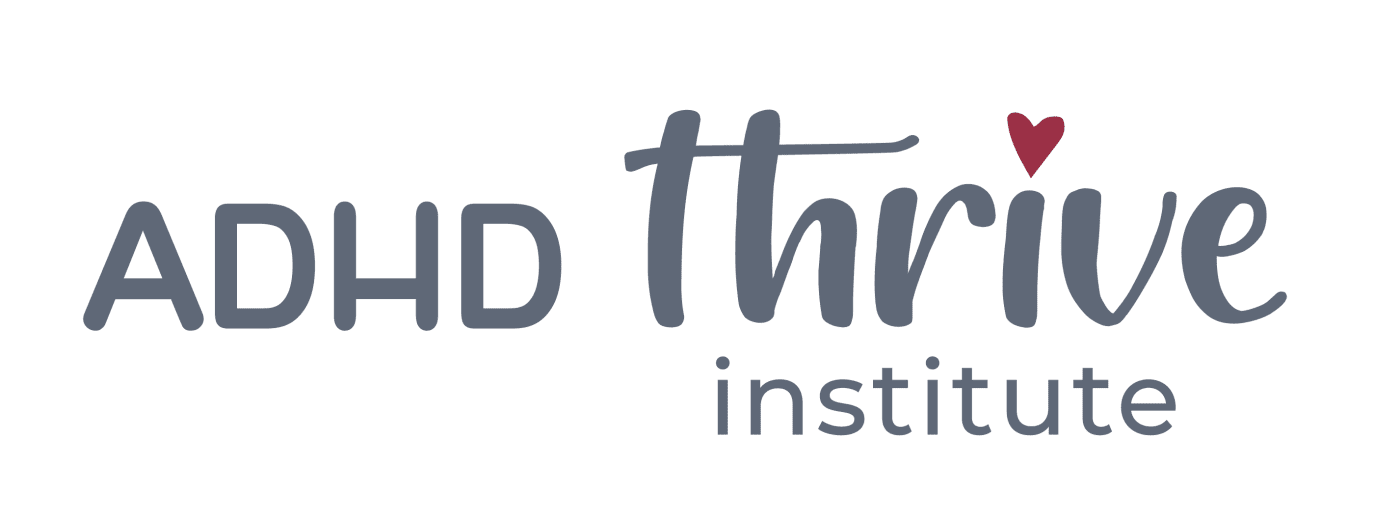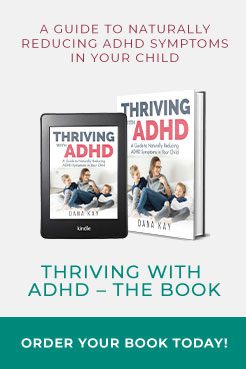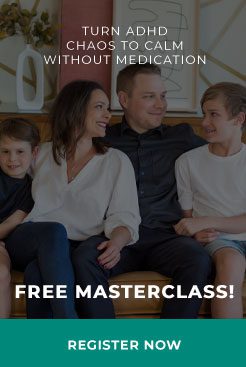If you’ve ever wondered, “Does ADHD affect sleep?” or felt desperate after yet another night of ADHD symptoms leading to no (or very little) sleep, this post is for you.
Sleep and ADHD are deeply connected but not in the way most people think. It’s not about needing stricter routines or trying another sleep supplement (though routines and supplements can definitely help!) What’s more important than routines is looking at what’s happening inside the body.
In this post, we’ll show you:
- Why many ADHD sleep issues are rooted in detox overload and inflammation
- How biological stress during the day turns into sleep disruption at night
- Why common advice doesn’t work (and what actually helps instead)
Let’s decode what’s really going on and give you the clarity and confidence to support your child from the inside out.
Why ADHD Sleep Struggles Aren’t Just About Routine
Most advice around ADHD and sleep focuses on surface-level fixes like:
✔️ No screens before bed
✔️ Calming bedtime rituals
✔️ Essential oils and weighted blanket
And still, bedtime is a fight…every single night.
Bedtime routines are important, especially for ADHD kids, and I definitely recommend all families take a look at their sleep routines.
Read this post or this one for some of my favorite routines and supplements to help with sleep.
Or check out the following podcast episodes, where I chatted with various sleep experts and got some great tips:
- Sleep Techniques for the Whole Family with Kim West
- Sleep Issues in Kids with ADHD with Ashley Gobeil
- Is it ADHD or Sleep Apnea? with Kirk Huntsman
But unfortunately, many families I have worked with have found that routines alone aren’t enough.
You can do everything right, and sleep still falls apart if something about your child’s biology is affecting their sleep.
Let’s dig a little deeper into what exactly might be going on beneath the surface.
The Sleep-Resistance Cycle: What’s Really Happening
What looks like bedtime resistance or nighttime chaos is often a detox overload loop in disguise.
Here’s how it typically plays out:
Step 1 – Daytime overload:
Think of your child’s detox system like a household trash truck. Every day, your child is exposed to various toxins, or “trash,” things like:
- Food chemicals
- Inflammatory byproducts
- Toxins from the environment
- Stress hormones
- Natural metabolic waste
Their detox systems (liver, lymphatic system, gut, skin) are supposed to clear that trash daily. But in many kids with ADHD, those systems run slowly, often due to gut breakdown, inflammation, poor diet, genetic factors like MTHFR, GSTT1, and GSTP1, or chronic stress.
As the day goes on, the waste builds up. When it lingers, it creates pressure on the body, and the internal trash can begin to overflow. Or, said another way, when detox pathways are blocked, toxins and waste products start to circulate in the body instead of being cleared.
These toxins can irritate the gut lining, trigger inflammation, and affect how the brain functions, especially the vagus nerve and frontal lobe, which control sleep, regulation, and stress response.
That means:
- Melatonin production is disrupted
- The nervous system stays activated in fight-or-flight mode
- Sleep becomes broken or delayed
- Mood swings and sensory reactivity increase
Step 2 – Nighttime struggles:
This leads to struggles to fall asleep, middle-of-the-night wakeups, or waking up exhausted. Your child’s liver is most active between 1–3am. If detox pathways are sluggish, this is when the body starts pushing back.
So instead of restful sleep, you see night sweats, tossing and turning, sudden wake-ups or panic, red cheeks or itchy skin, or even restless legs or anxiety at bedtime.
Step 3 – Even more dysregulation the next day:
And of course, the next day, this exhaustion leads to even more dysregulation.
That’s how you end up in what we call the Sleep-Resistance Cycle:
Daytime overload → Nighttime nervous system activation → Disrupted sleep → Next-day dysregulation → Repeat.

This is a loop so many families feel stuck in.
As you can now see, sleep struggles are not always signs of a broken routine. They’re often your child’s body trying to say, “I’m overwhelmed, and I need help.”
Common Sleep Patterns That Are Really Red Flags
When your child with ADHD struggles with sleep, it’s easy to assume it’s just “part of the package.” But many of the most common sleep challenges parents report are actually red flags, or signals that the body is under stress.
Let’s look at three of the most common sleep struggles in ADHD kids and what might really be going on beneath the surface.

Common Sleep Struggle 1 – Wired at Bedtime, But Can’t Settle
Your child is yawning at dinner and dragging through the evening, but the second it’s time for bed, suddenly they’re bouncing off the walls, cracking jokes, picking fights, or acting wild.
What gives?
Biological Explanation: This “second wind” is often a cortisol surge.
Cortisol is the body’s stress hormone, and when it’s elevated at night, it can block melatonin production and hijack the body’s ability to relax. For kids with ADHD, an inflamed nervous system or unstable blood sugar can trigger these nighttime spikes, leading to the wired-but-tired loop.
What to look for:
- Giggly or silly behavior late at night
- Trouble lying still or shutting off the brain
- Anxiety around bedtime transitions
- Cravings or blood sugar crashes before bed
Common Sleep Struggle 2 – Falls Asleep, But Wakes Around 2–3am
A second common sleep struggle is a child who wakes up like clockwork in the middle of the night.
Biological Explanation: This timing is not random. The liver — a key detox organ — is most active between 1–3am. If your child’s detox pathways are sluggish or overloaded, the system sends out stress signals at this time, disrupting sleep. This is especially common in kids with poor methylation, MTHFR variants, high toxin load, or imbalanced gut bacteria.
What to look for:
- Sweating or flushed cheeks at night
- Tossing and turning between 1–3am
- Vivid dreams or night terrors
- Itchy skin, sneezing, or sensory discomfort at night
Common Sleep Struggle 3 – Morning Meltdowns (Even After a “Full” Night of Sleep)
Finally, a third common sleep struggle is a child who wakes up grumpy, groggy, or unmotivated no matter how much sleep he or she got the night before.
Biological Explanation: This is a sign that sleep quality was poor, not just the hours logged.
When detox isn’t working properly, the body stays in light sleep, and the brain doesn’t complete the deep restoration it needs. Add in blood sugar crashes and poor neurotransmitter function (thanks to low magnesium, zinc, or B vitamins), and your child starts the day with an empty tank.
What to look for:
- Puffy face or red eyes in the morning
- Intense resistance to simple tasks
- Hiding under blankets or needing to be carried
- Big emotions within 10 minutes of waking
These Aren’t Just Sleep Issues. They’re Also Clues.
So the next time your child resists bedtime, wakes at 2am, or melts down over socks at 7:30am, pause before labeling it as “just ADHD.”
These patterns are windows into the body that can help us finally get that sleep that we all need!
Most conventional ADHD support plans focus on surface-level strategies, like routines or discipline, while completely skipping over what’s happening inside the body.
But the truth is, no sticker chart can fix oxidative stress. No bedtime story will reverse gut dysbiosis. And no sleep hygiene hack will unblock a detox pathway.
That’s why many families hit a wall. They’re using tools that aren’t designed to address the underlying stressors in the body. The missing link for many of these families is functional lab testing.
Inside our ADHD Thrive Method 4 Kids program, we use labs to identify biological stressors – things like poor methylation, mitochondrial dysfunction, food sensitivities, and high toxin load, all of which can disrupt melatonin production, cortisol balance, and deep sleep. If you’d like to learn more about my favorite functional lab tests for kids with ADHD, watch this short video.
Try This: Become a “Detox Detective” at Bedtime
Unfortunately, not every family can do functional lab testing. Insurance doesn’t often cover these tests, which leads some families feeling stuck, unsure how to really determine what’s going on without testing.
If this is you, there’s still something you can do. One of the most empowering things you can do as a parent is start observing your child’s sleep through a new lens (not as a behavior issue, but as a biological clue).
Here’s how to get started.

Ask yourself the following questions:
- Are they wired but tired at bedtime?
- Do they toss, turn, sweat, scratch, or talk in their sleep?
- Is the bedtime routine silly, frantic, or full of avoidance?
- What’s the mood like in the morning: calm and rested, or chaotic and reactive?
Pro Tip: Keep a simple notebook next to your child’s bed or in your kitchen.
Jot down quick notes in the evening and morning: how bedtime felt, any overnight wakeups, and what their mood was like after waking. Over time, patterns emerge, and those patterns tell a story.
This kind of reflective tracking is something we teach inside our program, and it often reveals more than any sleep tracker ever could. When you become a detox detective, you stop guessing and start connecting the dots.
Next to functional lab testing, this is a great way to get to the bottom of what’s going on inside your child’s body. Even small clues (like a flushed face at night or a craving for sugar before bed) can point toward the underlying issues that need support.
What Actually Helps (Beyond Sleep Hygiene)
I know what it feels like to watch your child bounce off the walls at 10 PM, even though they’re clearly exhausted.
To tiptoe through the night, hoping not to wake them at 2 AM…again.
To brace yourself for another meltdown-filled morning and wonder…
“What am I missing?”
Sleep hygiene is helpful. Bedtime routines are helpful. But often, they’re just not enough.
When your child’s biology is overwhelmed, no routine in the world can fix that.
So what actually helps? Here are a few practical steps you can take, along with the becoming a “detox detective”:
✅ Support their detox pathways with real food, hydration, and targeted functional support.
✅ Address inflammation and nutrient gaps with a gut-healing, anti-inflammatory diet. Check out these 2 podcast episodes to learn more about the best diet for ADHD kids: The ADHD Diet, Part 1 and The ADHD Diet, Part 2.
✅ Run the right functional labs (if possible) to find out what’s really disrupting their system.
✅ Regulate their nervous system with calming activities, movement, and connection throughout the day.
✅ Balance blood sugar and avoid late-night sugar spikes that trigger cortisol surges.
👉 If you’re ready to go deeper and understand the real reasons behind your child’s ADHD symptoms (including sleep struggles) come join me inside our free masterclass.
We’ll walk you through the same holistic, biology-first system that has helped thousands of families of kids with ADHD.
FAQs About ADHD and Sleep
What is the connection between sleep and ADHD?
Sleep and ADHD are closely linked because children with ADHD often have biological stressors (like inflammation, poor detox function, or blood sugar imbalances) that disrupt sleep. This leads to difficulty falling asleep, staying asleep, or waking rested, which then worsens ADHD symptoms during the day.
Does ADHD cause sleeplessness?
Yes, ADHD can cause sleeplessness. But it’s not just due to restlessness or racing thoughts. Many kids with ADHD have underlying issues (like detox overload, nutrient deficiencies, or elevated cortisol) that keep their nervous system in “alert mode” at night.
What are common signs that ADHD is affecting my child’s sleep?
Signs include: trouble falling asleep, waking at 2–3am, night sweats or itchy skin, vivid dreams, and groggy or irritable mornings. These patterns are often red flags of internal stress, not just poor routines or behavior issues.
Can poor sleep make ADHD symptoms worse?
Absolutely. Sleep deprivation increases irritability, impulsivity, and difficulty with focus and emotional regulation, all of which are common ADHD symptoms. Lack of restorative sleep creates a feedback loop that intensifies the very symptoms parents are trying to manage.
What helps ADHD kids sleep better naturally?
Start by supporting their biology: remove inflammatory foods, support gut health, hydrate, and balance blood sugar. Track symptoms, look for red flags (like night sweats or restlessness), and if possible, use functional lab testing to find and address hidden stressors.







